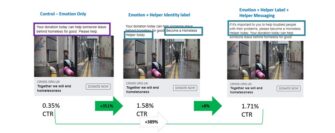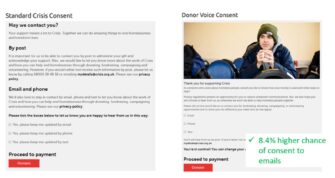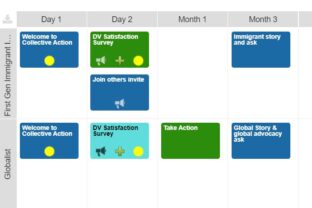Where and How to Apply Behavioural Science
Behavioural Science only works if it works. If it doesn’t one of two things is happening. Either,
- It’s all a hoax, or
- We’re missing something
Since behavioural insights are successfully and consistently applied in other sectors we can dismiss the hoax option. So, what are we missing? First, a definition.
Behavioral science is not synonymous with behavioral economics or nudges. That is but one slice of the behavioral science pie.
The BS pie (admittedly not a great name for an actual pie) is large with lots of varied slices.
What your organization or agency partner is missing is multidisciplinary expertise in, at minimum, personality, motivation, behavioral economics, neuroscience and data analysis. You’ll not find this in any one person just like you won’t find a real lawyer to match the television one who expertly handles contract law, antitrust, divorce proceedings and a criminal case in a single episode.
Your solution?
- Step one: find the right experts.
- Step two. Use them across all facets of your business.
A new book, from the Behavioural Economics in Action at Rotman (BEAR) Research Centre lists four key roles a behavioural scientist can play:
Problem Solver
Does your organization have any persistent, unsolved problems? How about donation page abandon, or second gift rates, or conversion to monthly giving, or attrition? Whatever the problem, there’ll be a scientific solution, or at least a scientific basis for a different, credible approach.
Take the perennial problem of improving conversion and value. How did Kiki (DonorVoice’s Chief Behavioural Science Strategist) improve response by 15% and increase average gift by £10? By doing donor research to unearth likely Identities (segments tied to who donors are, not what they look like) , forming a hypothesis. In this case: Tailoring a script by Identity would increase conversion. Then running a test, analysing the results and scaling up the winning test for acquisition. Problem solved.

Auditor
Like any other science, behavioural science is about discovery. There’s always more to know. But, in the meantime, there’s plenty we know as the basis for a specific hypothesis about your charity, your donors and your fundraising challenge. But you’d have to be a behavioural scientist to know it. The vast body of knowledge about how humans think, feel and process information before taking an action can be applied before problems happen.
Think about what you’re working on right now – the appeal going out the door, the donation page you’re designing, the social media acquisition effort – how many ways could it be improved if reviewed scientifically?
In this example Kiki audited a partner’s social media ads and increased click-through-rate 389%. Whereas the control focused on generalised emotion only, the test variants were audited and re-worked to included identity labels and messaging core to supporter motivation. No primary research required. No focus groups, just applying existing insights. Primary research is very useful when done well. Most isn’t. But, it needn’t be a barrier to initial progress though it’s a necessary ingredient to furthering your progress.
Designer
You spend a huge amount of time, energy and money designing products and programmes. In this role a scientist works with you to better identify the product/program needs before it’s developed. Drawing on a vast body of research, and observing actual users in a natural setting, your scientist partner identifies both an actual and ideal journey, compares the two and hypothesizes in order to identify and overcome obstacles to success.
Take the huge amount of effort, time and money spent (wasted) in the UK and Europe adapting to new laws regarding consent. There’s literally one case study (one!) showing any success. And it should come as no great shock it’s the one where behavioural science was tested and applied at this stage.

Strategist
Scientific insights as to why people do what they do aren’t (or shouldn’t be) “nice to haves”, applied randomly and/or inconsistently. You need them as your strategic foundation; defining goals, strategy, operating principles, designing and developing products/programs, preparing to launch, solving in market problems. Here’s where the scientific method gets embedded in your organization. One where a culture of solidly researched experimentation is the norm.
In a “sea of sameness” sector, success is contingent on understanding human behaviour is highly context-dependent; that what worked elsewhere for others isn’t guaranteed (or even likely) to work here. This requires a culture of continuous learning and humility. One where we overcome institutional fear of failure (and we could have a whole series of posts on how we define that word and its antithesis!) and respond rapidly to new information.
One of Kiki’s clients cut Month 3, sustainer attrition by 4 percentage points by re-imagining and redesigning the onboard journey to get past the fatal flaw in much of fundraising – one row. The dreaded journey planning with rows as audience. One row means you treat everyone the same. This winning test had two rows for the two distinct, Identity based audiences.
The strategy necessarily included an army of tactics to pull off this modern day “miracle” of fundraising in a way that more closely matches your daily reality, one where you never assume everyone is the same.

How behaviourally informed is your organization?
- Do you know supporters as individuals?
- Is variance in treatment dictated by what people did rather than why they did it?
A behaviourally informed charity is driven by a deep understanding of human nature in general and the individual drivers of behaviour unique to itself.
No nudge or book of nudges is the answer. It takes more. It takes a team of multidisciplinary scientists with formal, academic training and deep, domain (i.e. fundraising) experience.
That’s hard to come by but as a starting point, you can ferret out the phonies by asking about the vendor’s credentials (e.g. “are you a formally trained behavourial scientist or self-taught via an e-book or two?). If they don’t share those before they show you a bill, show them the door.
You wouldn’t want a foot doctor doing brain surgery and you surely wouldn’t want a lawyer doing it. Why do we allow for anything different in our cause driven world?
Your cause, your organization and you deserve better.
Charlie


